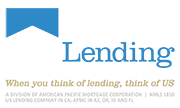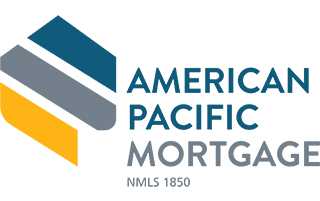Buying a Property to Live In or Invest In: Here’s What You Need to Know
Youth is wasted on the young, as the saying goes, and those who have aged realize the truth in the statement in terms of real estate investing. It’s Not surprising that many don’t consider investment ownership until much later in life, possibly losing out on a big opportunities doing so.
How to Define a Property for Lifestyle
People frequently get caught up in whether a particular property has distinct features that make it an investment over a lifestyle purchase. The reality is, just about any home property can be either. Instead of looking for particular features that classify the property as one or the other, buyers should really be looking at how flexible a property can be for both.
How to Define a Property for Investment
The key question to ask about an investment property is this: does it have the potential to gain value?. That’s the whole point of owning for a profit. There are distinct features that contribute to a gain. These include:
- The property is in a location that is in demand or likely to be so in the near future.
- The home is not next to anything that is going to be zoned for an increase in traffic, i.e. a change to a commercial use.
- There is room for the valuation to grow significantly. For example, a distressed home in a good neighborhood could be a situation to look into because the bank needs to sell the foreclosed property quickly for liquidation, but the real market price is higher.
- The property is in good condition and needs minimal care to put it in prime condition for resale. But at the same time it’s easy to move into and live in if necessary.
Lifestyle Vs. Investment: The Pros and Cons
Unfortunately, there is a plus and a minus to investment versus lifestyle. A lot depends on what one wants for their personal end goal for the next five, ten and twenty years.
Pros and Cons of Buying a House for Lifestyle
The lifestyle approach to homeownership is easy to fall into by default. After all, people need a place to live. And once a person gets settled into a place, it becomes very easy to regard the house as home The more that happens, the more an owner sets down roots and the harder it becomes to put it up for sale.
The Advantages
- Stability has big pluses. Statistically speaking, people tend to be more successful overall by getting married and raising a family versus staying single, and a home has a lot to do with that ability to grow on a solid foundation.
- There are also, of course, the tax benefits. A home pays back some of the cost of ownership via tax deductions.
- You don’t have to deal with the unpredictability of a lease or rental property where you as the lessee can eventually be pushed out against your preference or life’s schedule.
- Time is on your side as you continue to make mortgage payments, as well as improvements to the home. As time passes, payments are made and improvements are completed, value and equity continue to grow, and that can be quite profitable in the future.
The Disadvantages
The benefit, of course, is stability, but the downside is that one stops thinking about realizing an investment and instead just accepts that moving away isn’t going to happen anymore.
Always remember as well, making a property home means you eventually have to repair it to sell it again. All the maintenance costs and repair end up coming out of pocket and any gain that is made once finally sold. And, there is always the possibility that one could wait too long and be stuck in a home that has lost value.
Pros and Cons of Buying a House as an Investment
The investment side of things comes with its own risks and advantages as well. Consider the following. There is a big difference between an investment property held but lived in, one held but rented out, and one held but kept vacant. These three categories are the three main treatments that occur, and they produce three very different profits streams. Much of the difference has to do with cost paid before net profits are realized.
The Advantages
The advantages of keeping a place vacant or making it a rental means the impact of holding costs are minimized or outright eliminated. That in turn maximizes profit gain. Many folks repeat this cycle again and again, buying and selling repeatedly, growing profit exponentially with each cycle.
The lived-in investment property isn’t such a big gain because there are typically greater live in costs, but profit is still quite possible. Further, the owner gets the benefit of not having to rent elsewhere but instead living in the investment property itself until sold.
In both cases, again, one gets tax benefits as well, which reduce the living cost impact or financing cost if a mortgage is used to buy the home until sold again. And those deductions between property tax and interest paid can be sizable.
Finally, the investment is real and personal and tangible. There is no abstract asset listed on a piece of paper. The home is physically present and isn’t going anywhere when the stock market takes a dive.
The Disadvantages
No investment, aside from a bank account insured by the federal government, is entirely safe, and homes are no exception. Market values can drop and property is just as vulnerable to this possibility as any other investment. Additionally, one is always paying out cash to own the property if it is financed via a mortgage. This is typically in the form of interest charged on the loan. Further, it’s a long process to try to cash out a piece of the home via a refinance or equity liquidation; getting a quick change out doesn’t happen like selling a few shares of stock. Finally, getting into property as an investment takes a significant amount of startup funding, whether in cash or borrowed. There is no easy entry.
What to Consider When Deciding if a Property Should be an Investment or Home?
Aside from the property location, one should also consider what market sector the home is likely to appeal to in the near and not-so-near future. There is also the size of the home and at what level of the market the home will sell. For example, midsize homes are far more likely to sell fast versus luxury homes. And the condition of the property makes a difference in overall profit as well, especially when one has to pay money to fix it up.
Location and Neighborhood
The three principles of real estate are joked about as location, location and location. But there is a hard truth to that rule. You could have a mansion, but if it’s in a bad neighborhood, nobody will want to buy it. So, a small home in a great neighborhood will almost always produce a far bigger profit faster because the neighborhood health matters tremendously.
Size of the Property
There is some relationship to bigger prices possible with a larger property, but again the location nullifies or enhances this factor. Don’t get too caught up in size if the property is in a bad place overall. If in a good neighborhood, then a large property is just that much better as a consideration.
Condition of the Property
Any buyer should carefully consider the property condition, because it is a direct cost creator. The more banged-up the property, the more it will cost to repair. Only folks who really know how to renovate property hands on or manage contractors well should consider true recoveries. There’s money to be made but many rookies lose their shirt on repairs.
The Type of Mortgages Available
Whether a property is an investment or home doesn’t necessarily write off certain types of mortgages. However, borrowers may clearly see less cost with low-interest adjustable mortgages if they definitely plan to sell the home shortly after buying it. However, if the sale doesn’t happen, the adjustment to the loan could catch up with the purchase.
Amenities
Clearly, homes with more amenities sell better. Pools are a big draw; people like the idea of buying a home with a ready-installed pool in good condition. Similar benefits like second-story porches and expanded rooms sell well too.
How Much of a Down Payment is Needed for Each Option?
Generally, a good investment with minimal cost would require a larger down payment to avoid mortgage insurance costs. That said, an FHA loan could be had with a lower expense and works just as well with eligible homes. Just remember that FHA loans are capped in the amount of real estate that will be financed, and many better neighborhoods may not have homes that qualify.
Summary
Whatever the choice, a buyer should always keep in mind what is needed to sell a home when it is time to leave it, investment or not. The property should have the ability to produce a big difference between the price paid and the price sold. The home remains in a good location, even over time. And the property has the ability to serve multiple purposes if needed since life doesn’t always follow the laid plans. Having the ability to switch gears offers flexibility.
The views, articles, postings, and other information listed on this website are personal and do not necessarily represent the opinion or the position of American Pacific Mortgage Corporation or US Lending Company.
* For loan examples and more information visit our disclosure page at https://www.uslendingcompany.com/disclosures/





